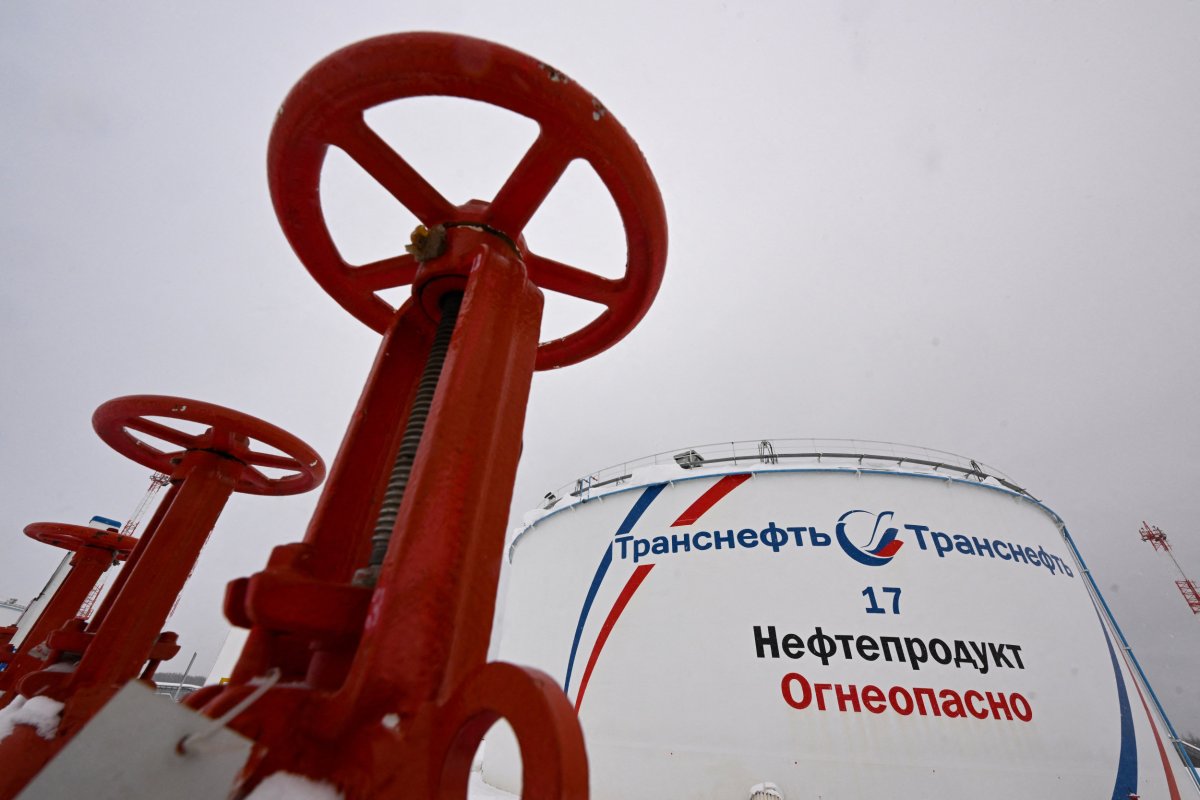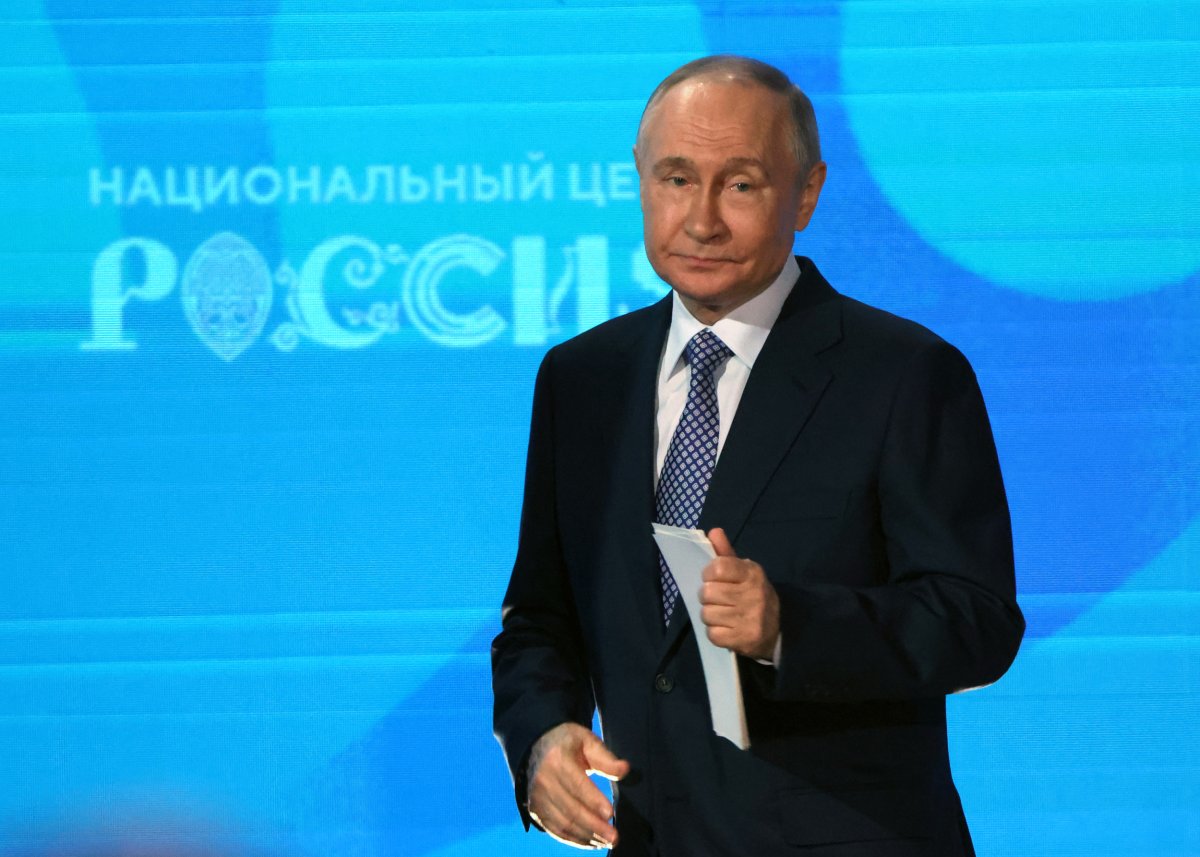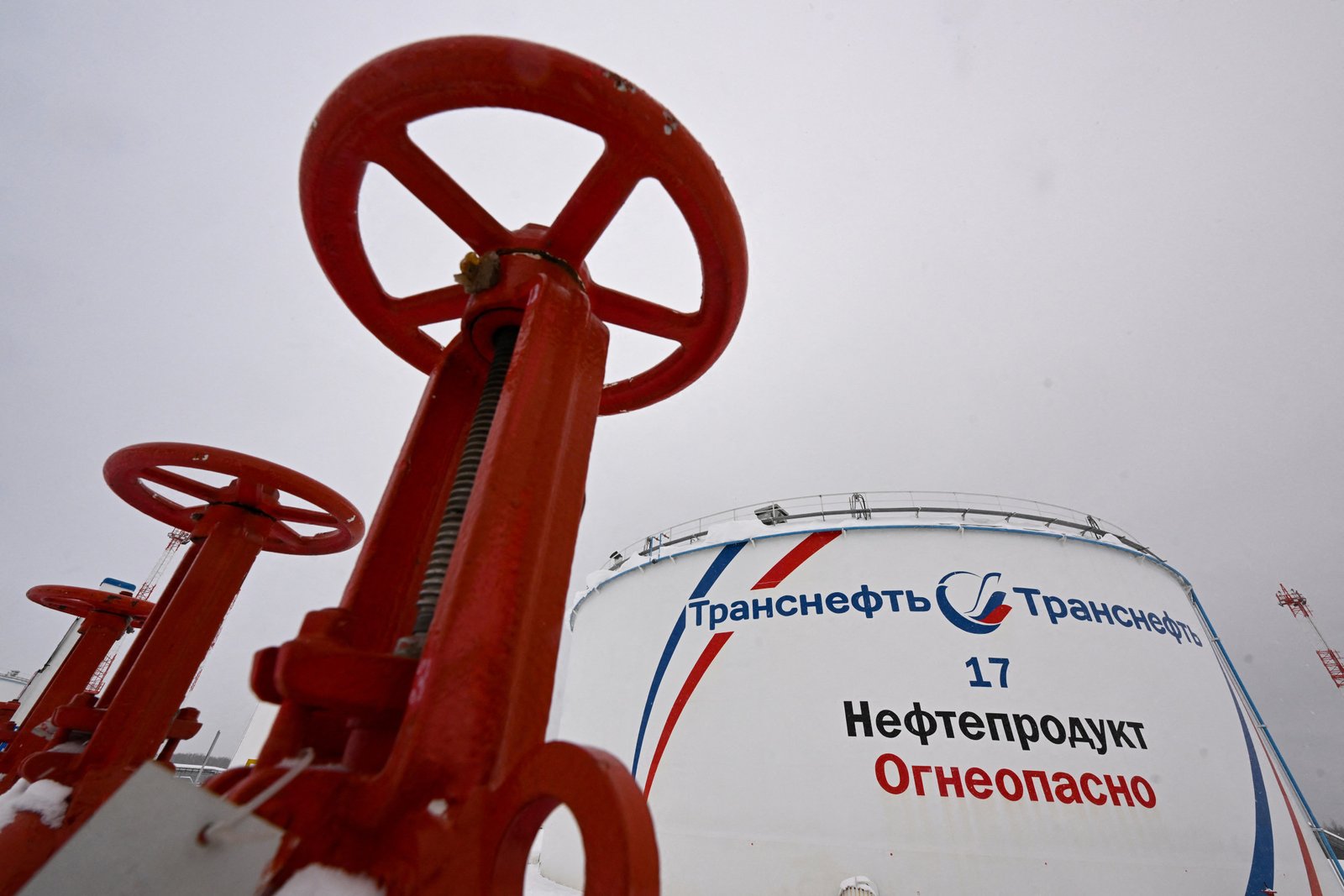Russia’s government has predicted the price of its oil will plummet to its lowest level in half a decade, posing a challenge to the country’s sanction-hit economy.
Russia’s Economic Development Ministry downgraded its 2025 forecast for Urals crude, Russia’s major oil export brand, to $56 a barrel. This would be its lowest level since 2020 when the COVID pandemic sparked a collapse in global demand for the country’s major export.
Experts have told Newsweek that oil offers U.S. President Donald Trump leverage in pressuring Vladimir Putin as the Russian president delays agreeing to any peace deal to end the war he started against Ukraine.
Meanwhile, lower prices of the energy export come as a report from the London School of Economics’ foreign policy think tank, LSE IDEAS, said that Ukraine’s economic resilience may outlast the Russian oil-funded war machine.
Newsweek reached out to the Russian Ministry of Economic Development for comment.
Why It Matters
Oil prices are crashing due to global economic concerns and increased OPEC+ production. Oil exports are a key driver of Russia’s economy, making it the focus of Western-led sanctions, which have aimed to choke funds for Moscow’s war machine.
However, Russia has circumvented a $60 price cap on a barrel of seaborne crude with a shadow fleet of vessels whose ownership is reorganized to hide links to Moscow.
As major purchasers of Russian oil, such as India and China, become more reluctant to risk secondary sanctions in buying the commodity, a slump in its price poses a further problem for Russia’s revenues.

NATALIA KOLESNIKOVA/Getty Images
What To Know
Russia’s Economic Development Ministry has reduced its 2025 forecast for the average price of Urals crude to $56 per barrel, which is well below the estimated $69 price that Russia’s budget is based on and the lowest since the pandemic caused a collapse in demand.
It is also less than the $60-a-barrel tipping point, above which profits from oil exports are added to Russia’s sovereign wealth fund via taxes. Revenues below this cut-off are covered by drawing from the fund, which as of April 1, held 3.27 trillion rubles ($39.8 billion) in liquid assets.
Berlin-based energy analyst Thomas O’Donnell told Newsweek that plunging Urals crude prices would put serious constraints on the Russian budget, but they won’t stop the war.
However, with Trump reportedly angered at the slow progress of peace talks in Ukraine, targeting Russia’s key export further could be a way to exert pressure on Putin. This could be done by sanctioning the oil exported from the western-facing ports in Ust-Luga, Primorsk, on the Baltic Sea, as well as Novorossiysk on the Black Sea.
The Ukrainians could also be allowed to use drones and missiles to target parts of the ports that support oil exports, O’Donnell said, because with market conditions of a great surplus of oil and low demand, pressure would build on Putin.
“If these ports were closed, half to three-quarters of all of Russia’s seaborne oil exports could be conceivably stopped,” O’Donnell said, “this could cut perhaps 15 percent of Russia’s budget income.”

Getty Images
Oil as a Bargaining Chip
David Goldman, head of trading at Novion Global, told Newsweek that in just over a week in April, Russia’s oil revenue dropped by almost 30 percent. Whether Trump intended it or not, his push for lower oil prices may well be the best bargaining tool he has when dealing with Putin, he added.
Meanwhile, a report released Tuesday by LSE IDEAS, the London School of Economics’ foreign policy think tank, said that Russia is betting its war effort on volatile oil rents, and its fragile financial system is coming under considerable strain.
Even in the face of the Trump administration’s apparent pivot toward Moscow, Ukraine and its European allies still hold more cards than many, including Trump, actually believe, said Luke Cooper, the author of the report and director of PeaceRep’s Ukraine program at LSE IDEAS.
Locked out of international bond markets due to sanctions, a further downturn in oil market prices could lead to an acute balance of payments problem for the Russian regime, his report concluded.
Also, with Ukraine’s sources of external financing secured until 2027, Russia, by contrast, is in a potentially weaker position, as it is highly exposed to price volatility in the global oil market, Cooper added.
As global demand for oil trends downward, there is an opportunity to increase pressure on Russia, Cooper told Newsweek. However, the Trump administration is prioritizing the reestablishment of an economic and political relationship with Moscow.
“The problem is that the Trump administration doesn’t appear to want to maximize pressure on Putin,” Cooper said.
What People Are Saying
Luke Cooper, director of PeaceRep’s Ukraine program at LSE IDEAS, told Newsweek: “It has long been recognized that oil is both a source of strength and vulnerability…as global demand for oil trends downwards, there is a clear opportunity to maximize pressure on Russia.”
Energy analyst Thomas O’Donnell told Newsweek: “If Trump wants to really do something, he should simply stop the flow of oil totally from Russia’s three westward facing ports—that would be a huge crisis.”
What Happens Next
Russia’s Economic Development Ministry forecasts only a modest recovery in oil prices in the next three years, with Urals expected to average $61 per barrel in 2026, rising to $63 in 2027, and $65 in 2028.
However, O’Donnell said that even if the oil price in the 50 dollar area hurts the Russian ability to conduct the war, unless the price of oil gets below $25 a barrel, it does not pose a serious emergency for Russia, which amplifies the need for the U.S. to use Russian exports as a tool against Putin.
